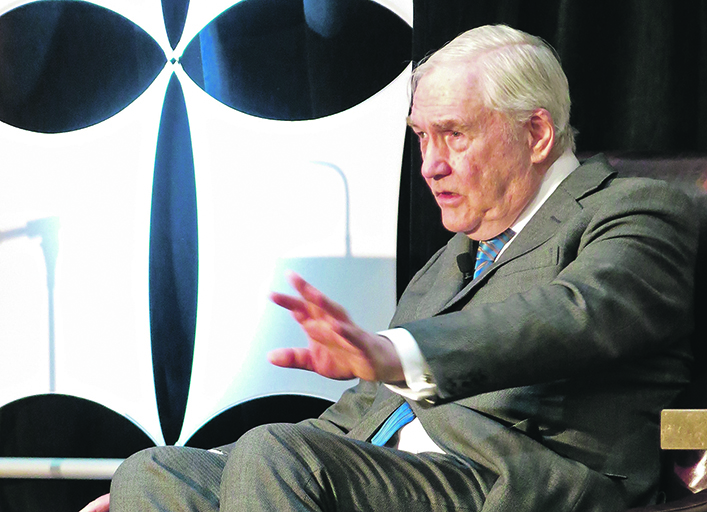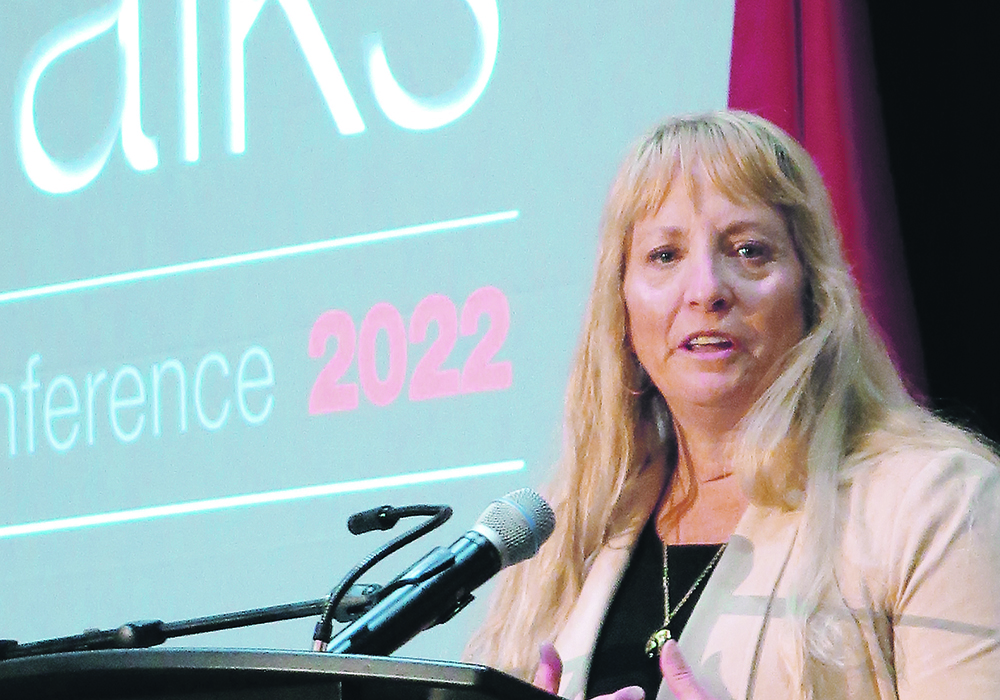RED DEER, Alta. — The first in-person Alberta Beef Industry Conference in two years attracted more than 500 participants, who discussed everything from Russia’s war on Ukraine to weather predictions for this summer.
The two-day event is normally held in March, said Janice Tranberg, president and chief executive officer of the Alberta Cattle Feeders’ Association. However, the COVID-19 pandemic resulted in the conference being further postponed to June 14-15 in Red Deer, after first being postponed last year, she said.
“It’s been a roller coaster, maybe that’s a good way to put it… so to be able to come and have this many people and have this lineup of speakers that we’ve had, and just to have people back to being able to meet one another and talk, it’s been a great conference.”
As one of Canada’s largest beef convention and trade shows, the conference was hosted by Alberta Beef Producers, Alberta Cattle Feeders’ Association, Alberta Auction Markets Association, Alberta Livestock Dealers and Order Buyers Association and the Western Stock Growers Association.
One of the speakers was Art Douglas, professor emeritus of atmospheric sciences at Creighton University in Omaha, Neb. He outlined what beef producers can expect in terms of weather for 2022 to 2023, including predicted hotter, dryer conditions into July and August, she said.
Farmers and ranchers experienced heat waves and drought last summer across much of Western Canada. Due to dry conditions this winter and spring, producers who were forced to downsize their herds last year due to shortages of feed have been looking apprehensively at what this summer will bring.
“We’re going to get back to La Nina conditions … unfortunately, it looks like we’re not out of the woods yet,” said Tranberg.
Despite the forecast, recent heavy rains across much of Alberta sparked some optimism at the conference, she added. “But you know, the positive, I guess, if you want to say there’s a positive, is that we’ve had such a cold spring – crops have been slow – that this rain now is fairly timely and if we get followed with some heat, it could be fairly good news that’s positive.”
Speakers at the conference covered everything from Russia’s attack on Ukraine, and how it will affect Canadians as suppliers of agricultural products to the world, to fears the economy is heading into a recession, she said.
“The other thing we heard is that global supply, the cow herd, has been decreasing, which is a big concern of ours, but at the same time, tightening global supply is going to mean that we’re going to get a higher value for what we have.”
However, grain prices and other input costs are also high, she said. “And a lot of producers are kind of stepping back and saying, ‘we don’t even know anymore really what it costs to produce an animal’ because there’s been so much change that we have to go back and reflect on what is the cost of production, and what are the prices that we need to again start to hopefully make a profit at some point in the future.”
One of the speakers was columnist and author Conrad Black, a former chief executive officer of the Hollinger newspaper group. He was jailed for fraud in the U.S. in 2007 and pardoned by then-President Donald Trump in 2019.

As part of a discussion moderated by Gary Mar, a former Alberta MLA who is the president and chief executive officer of the Canada West Foundation, Black was asked what he thought of proposed federal regulations that would require the labeling of ground meats as being high in saturated fats.
“I mean, if you ask some of these folks in the room here, they’ll tell you that there are things that appear to be being done by the federal government that are actively opposed to the cattle industry…,” said Mar. “Would we even be having this problem if this industry was in Trois-Rivieres (in Quebec)?”
Black told the audience that Albertans would be perfectly within their rights to use some of the techniques shown by Quebec. “I think you people have gotten an abominably raw deal … you don’t want to be completely undiplomatic because it would backfire – it would not create the impression you want.
“But I think you can pound the table and say, ‘This is unreasonable. This isn’t fair, and we’re not going to stand for it,’ and develop a scenario of gradations, of things to escalate your countermeasures.”
Although Tranberg told the audience that beef industry representatives have been meeting with everyone from MPs and senators to the prime minister’s office, “this still doesn’t seem to be getting our word out as much as we wanted to.”
As a result, the industry has launched a campaign where people can register their opposition at dontlabelmybeef.ca, she said. “And let’s tell Canadians, and let’s tell our politicians, that this really makes no sense and don’t label our ground beef, so I just wanted to put that out there.”


















